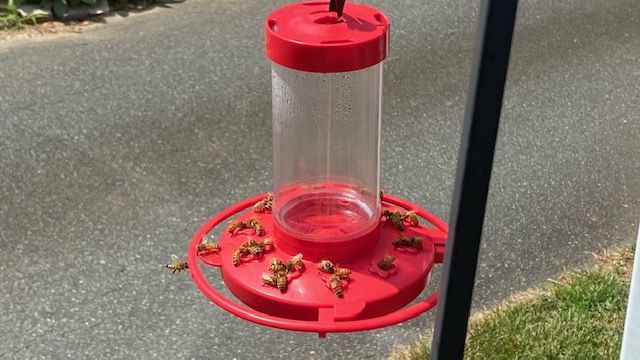July is coming to an end, North Carolina is still in the heat of summer. While recent rainfall eased drought conditions for some, conditions are still drier than average across parts of the state.
Regardless, our nectar-hunting bee friends are in a time of nectar dearth.
The spring awakening brings about plentiful nectar flow for our pollinating bee friends. Hummingbirds and honeybees find plenty of nectar for food in the variety of flowering plants and trees. Life and food are in abundance.
Summer brings a lack of nectar-producing plants. Honeybees are programmed to hunt food sources and are often attracted to the sugar water mixture filled in hummingbird feeders.
If you see your hummingbird feeder busy with bees, give it some room and be patient. The bees shouldn't be aggressive toward you since they are fixated on getting to the sugar water and taking it back to the hive.
So how do you tell the bees that the "sugar syrup store" has closed? Simple. Wait until the evening when the honeybees have stopped gathering food and take down the hummingbird feeder.
Keep the feeder down for about four days. With no food source available, the bees will get the message and stop showing up. You may have to do this several times during the next few months.
Don't worry about your hummingbirds, they are pretty loyal about constantly checking to see if their feeder is back and full. But until it is, prepare for a few days of lecturing from your hummingbirds.
In the end, the hummingbirds won't have to fight for space at the feeder.





